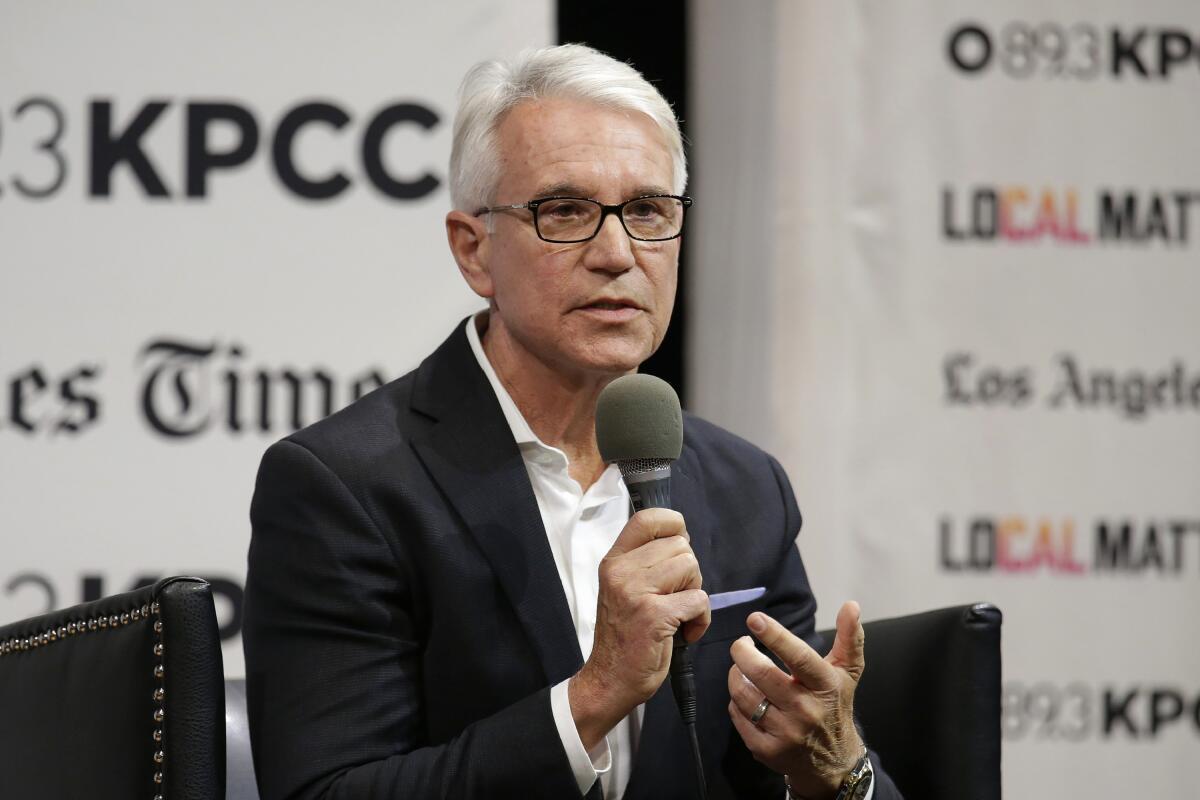Editorial: George GascĂłn canât fire prosecutors for opposing his vision. Can he win them over?

Three days after taking office in 2018, newly elected Philadelphia Dist. Atty. Larry Krasner fired 31 of his prosecutors and in so doing gave virtual notice to the remaining 500: Weâre doing things my way now. Like it, or get out.
Firings are a postelection staple in many jurisdictions, especially when an incumbent is tossed out. Theyâre a way for victorious challengers to put their stamp on their offices, along with hiring new personnel whose attitudes better align with the new regime. A reformer, Krasner ran as a member of the progressive prosecutor movement that emphasizes equity and harm reduction over long sentences. By getting rid of some veteran homicide prosecutors, among others, Krasner was able to quickly reset priorities and, by the way, rid himself of some of his strongest potential in-house critics.
Donât look for anything like that next week when George GascĂłn is sworn is as Los Angeles County district attorney. Even if he wanted to clean house (and he says he does not), GascĂłn canât just fire people who opposed his election or who donât like his policies.
The difference: civil service. Unlike in Philadelphia, where Krasner had the power to swiftly remake his office, or in San Francisco, where GascĂłn previously served as D.A., or in fact most prosecutorial offices around the nation, L.A. County prosecutors are protected by strong civil service laws. They canât openly defy directives from the boss, but they canât be fired, demoted or disciplined without just cause. And even then, any finding of just cause would be subject to multiple layers of review.
The L.A. district attorney can hire and fire a handful of top managers without review, but the vast majority of his 1,000 lawyers and hundreds of investigators and other personnel are protected. Thatâs just an L.A. fact of life. It has consequences, good and bad.
The good is fairly straightforward. In theory at least, civil service rules open government positions to any qualified applicant and ensure that everyone who merits it gets an exam or an interview. Hires and promotions are supposed to be made without regard to party affiliation, gender, race or anything else unrelated to oneâs ability to do the job. Strong civil service systems were seen as a guard against cronyism and corruption, especially in U.S. police departments at the beginning of the 20th century, and especially in Southern California. Civil service rules kept police and other government employees independent from politics.
And thatâs where civil serviceâs good consequences mingle with the bad. There has to be some balance between a government workforceâs independence and its responsiveness to elected leaders. When even LAPD chiefs had civil service protection, they followed their own policies, not those articulated by the mayor, City Council or voters. They had their jobs virtually for life. L.A. city voters fixed that in 1992 with a police reform ballot measure, and a series of follow-up measures eliminated civil service protection first for other city and county department leaders, and then for their top staffs.
But protections remain for a majority of the workforce, and thatâs as it should be, even if protected rank-and-file workers may be more suspicious of change in leadership and policy than their unprotected counterparts in other cities and counties. That may be even more true when the workforce has its own union, as is the case with L.A. Countyâs strong and vocal Assn. of Deputy District Attorneys, whose leaders have been at least as likely as outgoing Dist. Atty. Jackie Lacey to articulate positions on criminal law and prosecution in radio interviews and newspaper columns.
Upon GascĂłnâs recent defeat of Lacey, the ADDA released a statement noting its commitment to ensuring that each L.A. County prosecutor âenjoys the robust civil service protections to which they are entitledâ by law. In other words, you canât do to us what Krasner did to his prosecutors.
Like Krasner, GascĂłn campaigned on a progressive agenda, which includes no longer seeking death sentences, no longer trying juveniles as adults, pursuing criminal charges against police officers for excessive force, and a host of other reforms. To implement his agenda successfully, he will have to win over his office with the power of persuasion and an appeal to his prosecutorsâ professionalism. And he will have to do it quickly enough to satisfy voters and reform advocates. All parties would be best served by showing some patience. A little bit, anyway.
More to Read
A cure for the common opinion
Get thought-provoking perspectives with our weekly newsletter.
You may occasionally receive promotional content from the Los Angeles Times.










